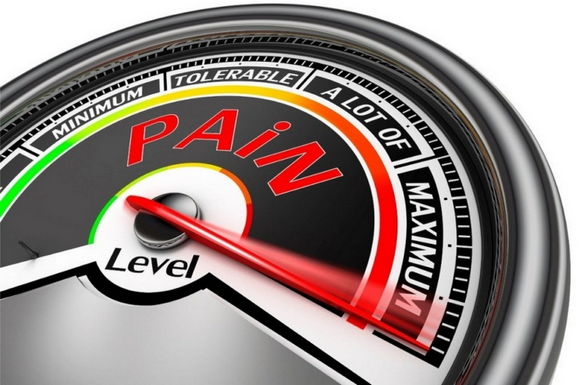Chronic Pain
 Chronic pain is a very diverse condition that affects over 49 million Americans. The American Chronic Pain Association describes it as ongoing or recurrent pain, lasting beyond the usual course of acute illness or injury or more than 3 to 6 months, which adversely affects the individual's well-being. In simpler terms, it can be defined as chronic or persistent pain that continues when it should not.
Chronic pain is a very diverse condition that affects over 49 million Americans. The American Chronic Pain Association describes it as ongoing or recurrent pain, lasting beyond the usual course of acute illness or injury or more than 3 to 6 months, which adversely affects the individual's well-being. In simpler terms, it can be defined as chronic or persistent pain that continues when it should not.
A complex condition, chronic pain affects a person in many different ways. When suffering from the condition, pain signals can continue to remain active for years. Because persistent pain is specific to ailment, it is poorly understood and difficult to control. Most cases of it are related to lower back pain, arthritis, headache, multiple sclerosis, firbomyalgia, shingles, and nerve damage. Other common cases of the condition can originate from old injuries that have healed improperly.
Consistent physical pain not only causes problems for the body, but for the mind as well. Ongoing physical pain can eventually manifest into emotional pain further harming the body. The psychological toll chronic pain causes can worsen pain and cause even more problems. Anxiety, stress, depression, anger, and fatigue are all emotional symptoms of chronic pain that may seem more settle, but are just as dangerous. The emotional impact chronic pain causes reacts with the body and can actually reduce the body's production of natural painkillers making the body much more sensitive. Negative emotions can also increase the level of hormones that amplify sensations of discomfort.
Management and treatment for chronic pain is just as complex as the disorder itself. The most important part of managing chronic pain is to remain positive and to choose a type of relief that is beneficial to the body. The first step to managing pain is to locate the origin of it, and the type of pain. From there it is best to see a pain specialist. There are many pain specialists that can treat specific forms of persistent pain.
Pain specialists can prescribe a verity of treatments that elevate moderate to severe chronic pane. Medications are typically the fist step to chronic pain. Doctors usually start patients with oral painkillers like acetaminophen and nonsteroidal anti-inflammatory drugs. These drugs relieve pain and reduce inflammation. They are especially used in cases related to arthritis, tendonitis, nerve injury, and mild to moderate cancer pain.
Narcotic use is the next level of pain treatment. Narcotic medications work on the body's nerve cells to control chronic pain. Though opiates are very effective in treating pain, they can also cause the user to become dependent and develop a tolerance that can make pain issues worsen. Opiates and cause other negative conditions if used improperly or over a long period of time.
Nerve blocks and acupuncture have been proven very helpful with managing pain without the dependency and dangerous side effects. Other alternatives such as hypnotism, meditation, and exercises are frequently suggested for persons suffering from chronic pains. These forms of new wave techniques are safe for the patient and can still be effective without harming the body.
